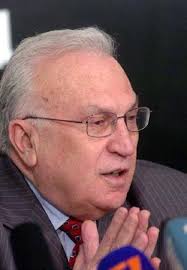 By Edmond Y. Azadian
By Edmond Y. Azadian
As if the police shootings in Dallas and Baton Rouge did not shock us enough, even more grotesque atrocities followed in Nice, France, and Turkey, with shockwaves arriving even from Armenia to further numb our sense of outrage.
Dallas and Baton Rouge Mourning
There is almost no relation or causality among the violence we witnessed around the world recently, except that in all the cases, human life has become so disposable that it is wasted, often without even the benefit of an excuse.
A series of police killings apparently triggered the July 5 killing of a black man, Alton B. Sterling, which was caught on video, thus not giving another chance to police to hide behind the claim of self-defense. However, with the abundance of guns in the hands of citizens, police have the right to worry about their own safety. Violence may erupt when the police stop a person for any reason. The freedom guaranteed under the Second Amendment and its abuse by the gun lobby does not auger well for our society.









